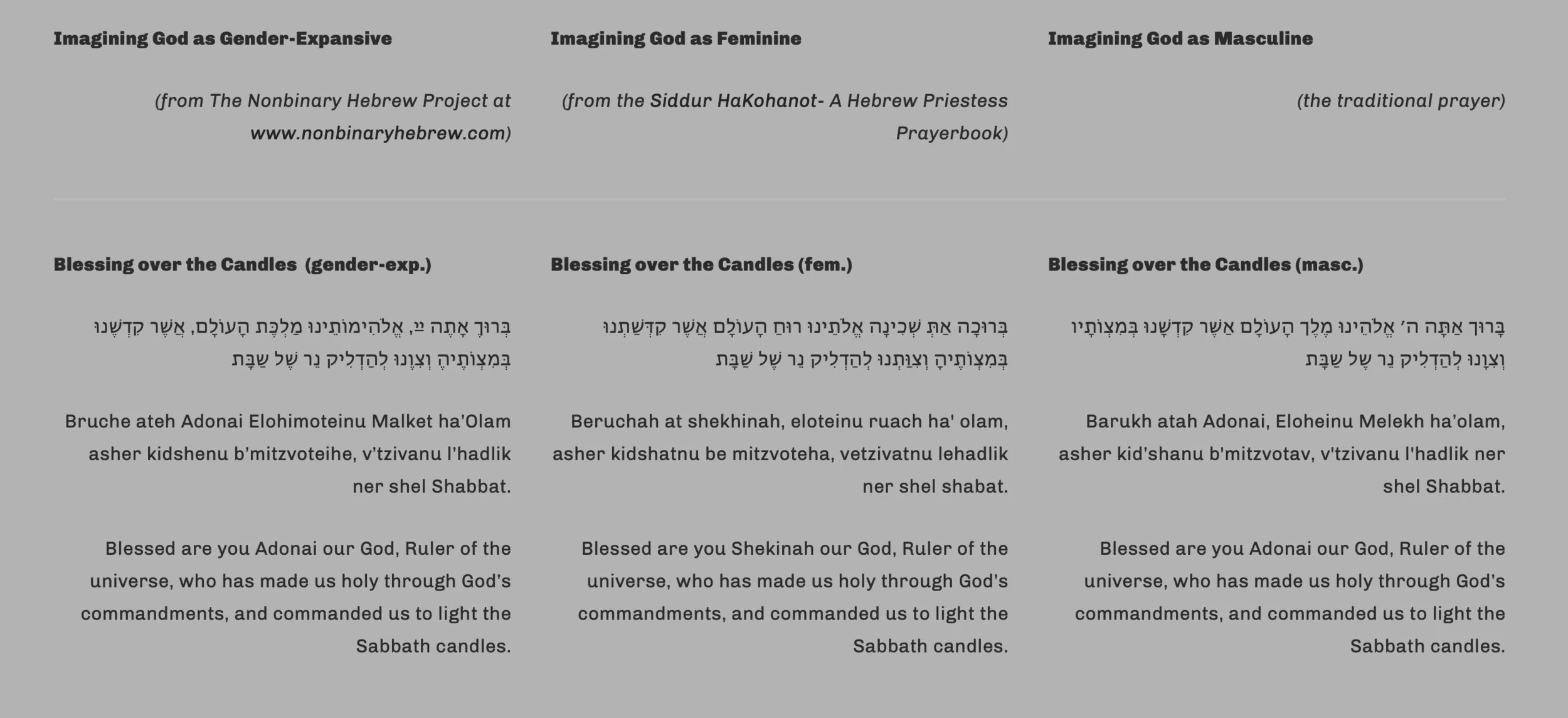Blessed Are You
A Gender-Expansive Shabbat
(built on The Nonbinary Hebrew Project and the Siddur HaKohanot)
In the Torah it says that we are B’tselem Elohim, that all of us were created in the image of G-d. In the text, when we read about G-d, we often use “he” and “him” words, so you might tend to think of G-d as a man. What does it mean to say that we are all created in G-d’s image, but always talk about G-d as a man? What does that mean for those of us that are not boys? What does it mean for those of us that are boys?
Some people like to think of G-d as bigger than being a boy or girl. They might like to imagine that G-d is very big and is like all of us, all the different ways we can be. Many people identify as “Nonbinary”: not as a girl or a boy, but somewhere in between, or something else entirely beautiful. They might always feel the same, or they might feel one way and then different another day as they grow. And that’s good. No matter what, we are made in G-d’s image, “B’tselem Elohim.”
In Hebrew, words like “you” and “I” take on gender when they are used with verbs. This means that when someone says something like “you sing” it either means “you (a boy) sing” or “you (a girl) sing.” If you want to pray to G-d and you think of G-d as a woman, you might want to change the words: “baruch ata” becomes “beruchah at.” But what if you want to imagine that G-d is bigger than that? Man, woman, and more? For that, you need new words.
Lior Gross and Eyal Rivlin have been searching for and discovering new ways to express nonbinary concepts and include nonbinary people in Hebrew. They share their work through the Nonbinary Hebrew Project. These Shabbat prayers are reimagined using their new grammatical system to say that G-d is beyond a simple image of a man or woman, and our language can hold this expansiveness. This version of the prayers is not meant to be definitive, but hopefully a place to start this conversation.
Maybe you’d like to try new words to talk about G-d. Here are the prayers for Shabbat- whether you want to think of G-d as a man, a woman, or gender- expansive. This way you can try out different ways to pray and see what feels good to you. It might change from day to day, and that’s good. What does it feel like? How does it help you connect with G-d, and everyone who is “B’tselem Elohim,” made in G-d’s image?


